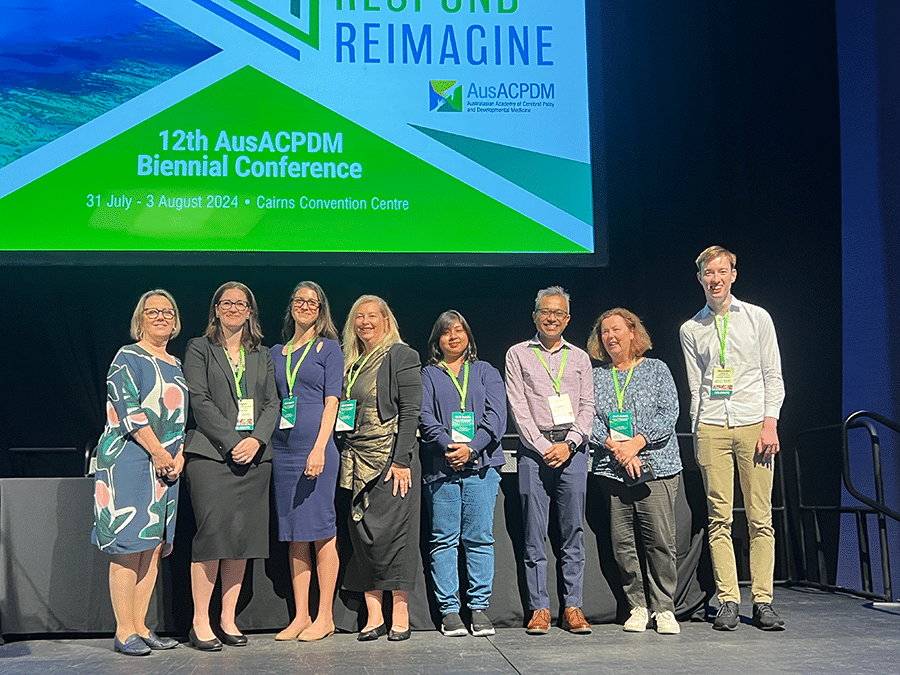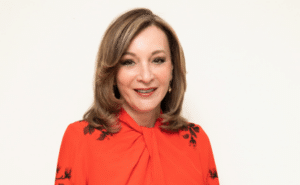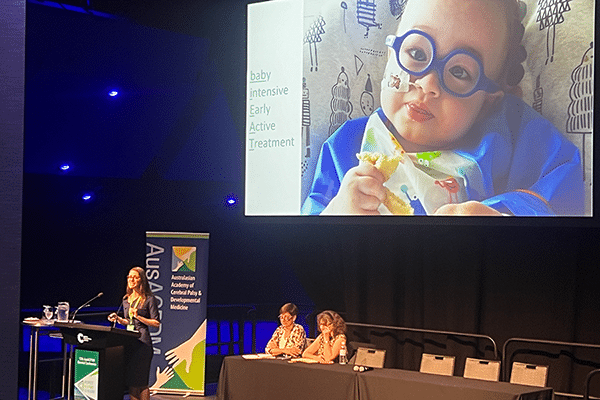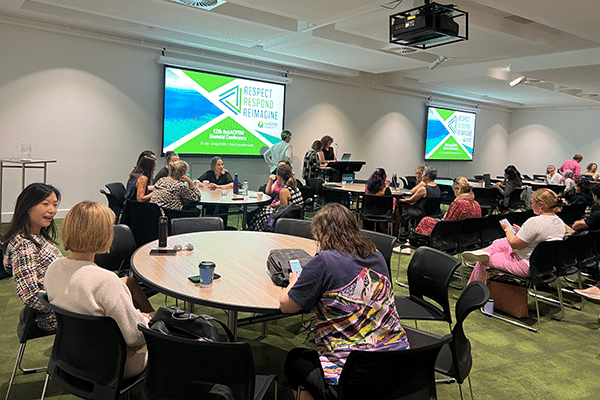
The conference brought together a diverse group of more than 650 researchers, clinicians, and advocates and more than 40 people with lived experience from 28 countries. It took on a sustainable focus, aiming to reduce its carbon footprint, delivering a hybrid presentation that allowed attendees and presenters to participate virtually. It included 159 presentations, 92 posters, 12 breakfast sessions, 8 keynote and 22 workshops. Keynote presentations from Sandra Eades a leading Aboriginal paediatrician and researcher, and disability advocate Hannah Diviney opened the conference.
With Cerebral Palsy Alliance as the platinum sponsor, this year’s conference was an extraordinary success, filled with inspirational discussions, groundbreaking research, and renewed commitments to improving the lives of individuals with cerebral palsy and developmental disabilities.
The theme of this year’s conference, “Respect, Respond, Re-imagine,” was echoed throughout presentations during the event.

The scientific program covered various aspects of the latest research, interventions, and knowledge translation initiatives from local and global perspectives. This included strategies around prevention to build on the 40% drop in the rate of cerebral palsy in Australia in the last two decades, such as the prevention of cytomegalovirus infection which contributes to 10% of cerebral palsy. Genomics featured prominently with the hope of finding targeted therapies.
From high-resource areas to more challenging environments such as in low- to mid- income countries represented by speakers from around the world including Argentina, Fiji, Vanuatu, Malawi, Ghana and Bangladesh. Discussions highlighted the importance of adapting strategies to different contexts to ensure that progress in cerebral palsy research and care is inclusive and globally impactful. The conference featured workshops providing case studies and evidence supporting early detection and intervention as well as evidence-based therapy and assistive technology. Megan Finch Edmondson and Amy Hogan gave an engaging presentation which brought the Australian and New Zealand Cerebral Palsy Strategy to life.
Dr Israt Jahan, supported academically by CPA for several years, and Dr Amanda Khamis, Research Fellow at the CPA Research Institute, were awarded Plenary sessions for their PhD work describing the high prevalence of malnutrition among children with CP in Low– and middle– income countries and addressing swallowing strategies in babies diagnosed with CP.


Cerebral Palsy Alliance played a key role at this year’s conference, participating in 24 presentations, leading two preconference workshops and 6 poster presentations from our researchers and clinicians. Professor Sarah McIntyre, Program Lead for Epidemiology at Cerebral Palsy Alliance and Co-chair and President of the AusACPDM, was instrumental in shaping the event’s agenda.
Professor Sarah McIntyre’s leadership, along with the contributions of her colleagues—Professor Iona Novak AM, Professor Nadia Badawi AM, Associate Professor Cathy Morgan, Dr. Petra Karlsson, Associate Professor Hayley Smithers-Sheedy and Dr. Megan Finch-Edmondson and a CPA team of seven clinicians and 31 researchers—ensured that attendees could access some of the most cutting-edge insights and developments in the field. Members of CPActive, CPA’s influence and marketing teams, Sophie Marmont and Nicholas Lapsley represented CPA’s advocacy work and Sarah Reedman helped organise an early-career researcher session. Five members of the team shared their involvement and academic prowess in interviews with the ResearchWorks Podcast.
The conference not only showcased the remarkable progress that has been made in the field but also highlighted the ongoing challenges that need to be addressed and how much more work there is to do. We are proud that CPA clinicians and researchers made direct contributions, and that CPA funded numerous projects and individuals at the conference. The event reinforced CPA’s standing, with many studies referencing our work, amplifying our impact on advancing knowledge, treatment, and prevention of CP.
Cerebral Palsy Alliance is proud to have been a key contributor to this year’s conference and is committed to supporting research, innovation, and advocacy in the field. We extend a huge thank you to all the participants, speakers, sponsors, and organisers who made the AusACPDM Conference such a success. We look forward to coming together again in 2026 at the next conference to continue this vital work and to celebrate even more advancements in the field of cerebral palsy and developmental medicine.